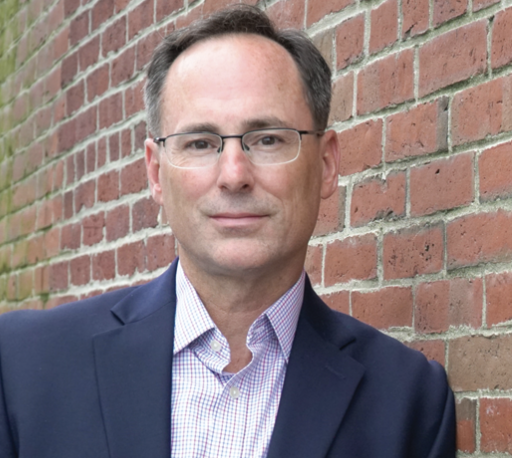Writing to Benjamin Franklin in 1779, the Marquis de Lafayette described America as “a country where one may be bless’d with the healthy air of liberty.”
That metaphorical turn of phrase would turn out to be literally true as well.
Human liberty, the most powerful force on earth, has generated levels of wealth entirely unimaginable before the Enlightenment. And from that unprecedented prosperity has flowed astronomical improvements in the quality of human life.
Anti-capitalist activists believe (or at least claim) that the planet is being poisoned by the West in general and capitalism in particular. But the data show otherwise. Take Lafayette’s phrase “healthy air,” for starters.
The countries with the highest rates of death from outdoor air pollution are Egypt, Iraq, and Saudi Arabia, according to the team at Our World in Data. Where are deaths from outdoor air pollution falling? In high-income countries.
How about indoor air pollution (from, say, burning wood or coal to cook or stay warm)? It “has almost been entirely eliminated across high-income countries but remains a large environmental and health problem for lower-income countries,” summarizes Our World in Data.
How about clean water? “The issue of unsafe water sources is…one that is largely limited to low- and lower-middle-income countries.”
How about sanitation? In high-income countries, 91 percent of the population uses safely managed sanitation facilities, according to the World Health Organization and UNICEF. In low-income countries, the figure is 24 percent.
Child mortality? “A child born into one of the poorest countries faces a one-in-ten chance of dying within the first five years of her or his life,” Our World in Data’s Max Roser writes. “In rich countries, the rate of survival is as high as 99.8 percent.”
In the world’s most prosperous countries, hundreds of millions of people worry about the drama that is Taylor Swift’s love life because they don’t have to worry about more serious drama, like dying from cholera or dysentery.
Go down the list of historical human maladies, from famine and disease to pollution and poverty, and every one of them has been alleviated by widespread prosperity, which itself was generated by free-market capitalism and representative, rules-based government.
That’s the magic of economic growth. As Roser and his colleagues put it: “In places that have seen substantial economic growth, few now go without food, almost all have access to education, and parents rarely suffer the loss of a child.”
It might seem obvious that people in wealthier places enjoy a significantly higher quality of life. But too often, our political rhetoric is poisoned with lies about the evils of prosperity and the virtues of poverty. Despite mountains of data and basic common sense (would you rather be rich or poor?), activists tell us every single day that capitalism is evil and destructive.
Some of them are blinded by corrupt ideologies. Others just don’t see the connection between prosperity and their own life preferences.
Take arts and culture. You might struggle to find unapologetic champions of capitalism among the creators of the latest counter-culture art exhibit or trendy community theater production. You’ll also struggle to find the very poor on the lists of patrons whose donations built the theaters, museums, galleries, and concert halls where the anti-establishment performers are applauded for their attacks on bourgeois norms.
Unsurprisingly, a 2020 Urban Institute study found vibrant arts and cultural sectors can make people feel more attached to and satisfied with their communities. It also found that wealthier communities had more access to these amenities.
“People in low-income or minority households report lower levels of access to arts and cultural activities than higher-income or white residents,” the report concluded, also unsurprisingly.
Whatever your hobbies, passions, pastimes, or interests, you’re able to enjoy or pursue them for one reason only. You live in a prosperous country.
Americans can fall into the habit of taking our prosperity for granted. Too many of us assume that having enough leisure time and spending cash to binge-watch “The Bachelor” on a $500 flat-screen TV while shopping for shoes on a $1,000 smartphone is some default state of being. It isn’t. Dying of cholera after burying six children who died of diarrhea and typhoid fever is.
All of the prosperity that we enjoy, often without even realizing it, was made possible by individual liberty. It was generated when the culture shifted away from top-down authoritarianism and toward bottom-up ingenuity.
The Enlightenment’s embrace of individualism liberated everyone, from peasants to farmers to idle nobles, to pursue their own happiness rather than follow a path laid out for them by the state, the nobility, the guilds, or their families.
In short, freedom is the foundation for everything we have. It’s the wellspring of our prosperity and our happiness, even for those of us who imagine, against all contrary evidence, that collectivism will somehow create the real Utopia, rather than the famine and mass murder it actually did create.
That’s particularly true in New Hampshire, where a culture of low taxes, limited government, and personal freedom has made us exceptionally free and prosperous even for a country as rich and free as the United States. Probably no other people on earth are as free and wealthy, relatively speaking, as the average Granite Stater.
So this July 4, be grateful that you live in the freest state in the one country on earth dedicated to the proposition that all men are created equal and are endowed by their Creator with the right to pursue happiness without direction from the state. And be prepared to defend that freedom the next time someone tries to tell you that giving it up in exchange for a little more bossing around from some bureaucrat or politician would be the smart thing to do.





